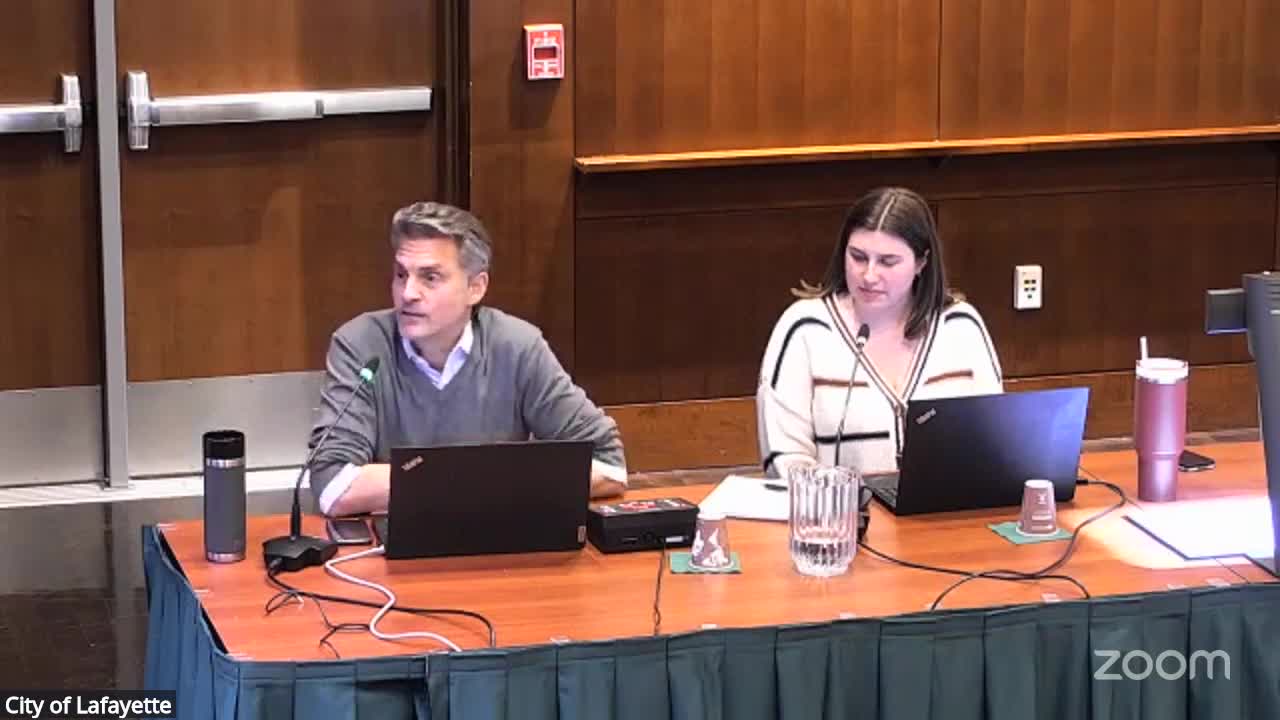Planning director updates commission on ADU fee reductions and Bay Area TOC policy
Get AI-powered insights, summaries, and transcripts
Subscribe
Summary
City planning staff briefed the Lafayette Planning Commission on the ADU accelerator program, including a 50% reduction in city impact fees that continues through next year and a potential $15,000 per EDU grant via a state one‑time program, and outlined regional Transit‑Oriented Communities (TOC) implementation stemming from Plan Bay Area 2050.
City planning staff updated the Lafayette Planning Commission on ongoing programs to incentivize accessory dwelling units (ADUs) and on regional policy changes related to Plan Bay Area 2050 and Transit‑Oriented Communities (TOC).
The planning director (name not specified) reminded commissioners that the city’s ADU accelerator program has been in place for about two years and currently reduces city impact fees by 50%; that reduction will continue through next year. The director also said homeowners may be eligible for a one‑time state grant of up to $15,000 per EDU through an allocation handled via Senator Glaser’s office.
“Please visit lovelafayette.org/adu, and they will be you you can, see all of the accelerator programs which are currently running,” the planning director said.
Staff said a subcommittee of the Design Review Commission is working with consultant Lisa Wise Consulting on phase 2 of objective standards; the work will be brought to the planning and design review commissions in the coming weeks to months. In addition, regional agencies ABAG and the Metropolitan Transportation Commission (MTC) have adopted Plan Bay Area 2050; the MTC board has adopted TOC as an implementation measure intended to increase housing and density near transit and reduce greenhouse gas emissions.
The planning director said jurisdictions will need to demonstrate compliance with TOC rules to maintain access to some grant funds, including certain OBAG and One Bay Area grant programs. Staff noted the city has received roughly $4,000,000 from those types of transportation grant funds over the last four to five years. The director characterized TOC implementation as potentially complicating for local regulations and said many jurisdictions are still interpreting the rubric and metrics; the expectation is that compliance demonstration will be required early next year.
A commissioner asked whether TOC implementation addresses lighting and late‑night walking conditions; staff said the published materials did not reference lighting specifically and agreed to follow up on that issue. Staff asked commissioners to monitor the TOC rulemaking and said planning staff will bring definitive proposals to the commission and to city council when they have clearer guidance from regional agencies.
